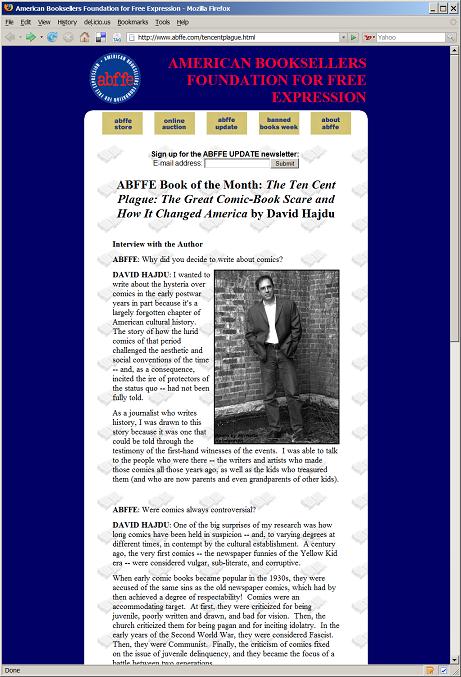February 26, 2008
An interesting post at the Language Log on the Whorfian hypothesis: “Poor, arid, and, in appearance, deformed”
At least in lexicographic terms, the Indo-European languages do not, contrary to what Whorf says, share a linguistic history that predisposes their speakers unconsciously to a particular physics of time, distance, velocity and so on. In particular, the English words for those abstract physical concepts developed rather late, mostly as part of a conscious effort to import or develop explicit physical theories. And the terms used were figurative or metaphorical extensions of much juicier and more concrete words for things like “strength” and “discord” and “being alive”.
Comments (0)
- culture
February 15, 2008
Comments (0)
- culture
February 8, 2008
 The title caught my mind, sounds interesting as a cultural analysis: American Angels: Useful Spirits in the Material World by Peter Gardella (University Press of Kansas, 2007)
The title caught my mind, sounds interesting as a cultural analysis: American Angels: Useful Spirits in the Material World by Peter Gardella (University Press of Kansas, 2007)
Gardella’s engaging study is the first to look objectively at the place of angels in American culture. He explores in particular the emergence of a domestic religion of “useful angels”–especially outside mainstream churches–that has created a uniquely American faith, one that addresses everything from the sexuality of angels to how angels and demons literally figure in the War on Terror….
Beautifully and sympathetically written, but with a scholar’s eye for pattern and detail, American Angels mixes theology, psychology, sociology of religion, gender theory, and even film criticism to create an unusually well-rounded survey of a uniquely American phenomenon. It shows us how the utility of angels speaks to the very core of religion and will enlighten skeptics and believers alike.

In a similar vein there is American Jesus: How the Son of God Became a National Icon by Stephen Prothero (Farrar, Straus and Giroux, 2004)
by Stephen Prothero (Farrar, Straus and Giroux, 2004)
Comments (0)
- culture
 American Booksellers Foundation for Free Expression has chosen ‘The Ten Cent Plague: The Great Comic-Book Scare and How It Changed America’ as Book of the Month; and author David Hajdu is interviewed at their website.
American Booksellers Foundation for Free Expression has chosen ‘The Ten Cent Plague: The Great Comic-Book Scare and How It Changed America’ as Book of the Month; and author David Hajdu is interviewed at their website.





